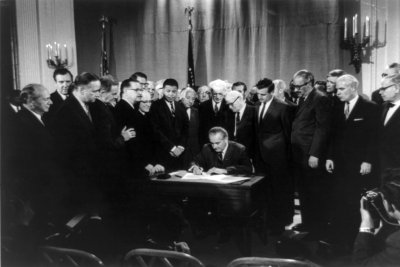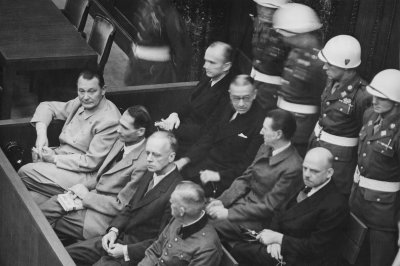Topic: Robert Byrd
Quotes
A new day has dawned in Washington, and that is a good thing
Sen. Byrd to step down as committee chair Nov 07, 2008
As a result of this lack of oversight, billions of dollars have been lost or wasted, bad contractors have been rewarded, and shoddy workmanship -- some of which has resulted in the deaths of our soldiers -- has gone uncorrected
Byrd says U.S. money lost in Middle East Jul 23, 2008
He came into the office today, and he was a little sluggish
W.Va.'s Byrd hospitalized with fever Jun 02, 2008
I want to take a moment to say how distraught and terribly shaken I am over the news of my dear friend, my dear, dear friend, Ted Kennedy
Colleagues wish Kennedy well May 20, 2008
The president wants money to build schools in Sadr City, but not in Seattle
Byrd, 90, holds on to appropriations post Apr 17, 2008
Robert Carlyle Byrd (born Cornelius Calvin Sale, Jr.; November 20, 1917 – June 28, 2010) was a United States Senator from West Virginia. A member of the Democratic Party, Byrd served as a U.S. Representative from 1953 until 1959 and as a U.S. Senator from 1959 to 2010. He was the longest-serving senator and the longest-serving member in the history of the United States Congress.
Initially elected to the United States House of Representatives in 1952, Byrd served there for six years before being elected to the Senate in 1958. He rose to become one of the Senate's most powerful members, serving as secretary of the Senate Democratic Caucus from 1967 to 1971 and—after defeating his longtime colleague, Ted Kennedy—as Senate Majority Whip from 1971 to 1977. Byrd led the Democratic caucus as Senate Majority Leader from 1977 to 1981 and 1987 to 1989, and as Senate Minority Leader from 1981 to 1987. From 1989 to 2010 he served as the President pro tempore of the United States Senate when the Democratic Party had a majority, and as President pro tempore emeritus during periods of Republican majority beginning in 2001. As President pro tempore, he was third in the line of presidential succession, behind the Vice President and the Speaker of the House of Representatives. He also served as the Chairman of the United States Senate Committee on Appropriations from 1989 to 1995, 2001 to 2003, and 2007 to 2009, giving him extraordinary influence over federal spending.
Byrd's seniority and leadership of the Appropriations Committee enabled him to steer a great deal of federal money toward projects in West Virginia. Critics derided his efforts as pork spending to appeal to his own constituents. He filibustered against the 1964 Civil Rights Act and supported the Vietnam War, but later backed civil rights measures and criticized the Iraq War. He was briefly a member of the Ku Klux Klan in the 1940s, but later left the group and denounced racial intolerance.
It uses material from the Wikipedia article "Robert Byrd."











